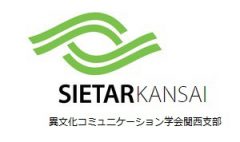Presenter: Ms. Yuko Nishiyama
Date: Saturday, March 30, 2013 (4:00pm~6:00pm)
Place: Takatsuki Shiritsu Sogo Shimin Koryu Center, 3th floor (Room 1)
(1 minute walk from JR Takatsuki Station) Tel.0726-85-3721
http://www.city.takatsuki.osaka.jp/db/kurasu/images/koryu.gif
Fee: 500 yen for members and students, 1,000 yen for non-members
Language: English (partially Japanese)
Co-sponsors: SIETAR Kansai and JALT Osaka
Description of presentation:
Much like in the aftermath of the Hanshin Earthquake, official response was inadequate and slow in coming. And much like in 1995, local businesses, community groups and NPOs are filling the breach. One of these is Minna no Te, a community action group of Tohoku evacuees living in Kyoto. Its founder, Yuko Nishiyama will detail her personal story, her efforts to partner with local aid groups, and explain how you can help those affected by the 3/11 disaster.
Many of us have looked on in sympathy with those undergoing such tremendous misfortune, but are at a loss for how we can help without the expense and time commitment of a trip to Tohoku. Yuko will expand our knowledge of the 3/11 crisis’s local dimension, and offer opportunities for us to “think globally and act locally.”
Finally, she’ll explain how the community is spreading the word of the ongoing challenges besetting the affected. Among those projects is a website featuring blogs by victims and a speaking tour at the University of Hawaii-Manoa during the week of March 11, 2013, commemorating the two-year anniversary of the earthquake.
The television news may have moved on to other topics, but the continuing events and consequences of 3/11 continue to inspire a collective response from all of us. Formerly loosely-associated groups around the globe are using the internet and social media to raise awareness and answer the challenges. Learn how you can become involved!
Profile of presenter:
A native of Fukushima city, Yuko Nishiyama earned a BA in linguistics from
Iowa State University, where she lived for five years. Following an
eighteen-month French immersion in Canada, she returned to Fukushima and
worked as an English teacher and interpreter. She left her career with the
birth of her daughter Mariko and was living with her in Fukushima when the
3/11 disasters struck. She evacuated with her two-year-old later that
month, eventually settling in Kyoto in June. Surrounded by other evacuees,
she founded *Minna no Te*, a community organization dedicated to providing
information and assistance to those displaced. Current initiatives include
the Dream Summer Project, which reunites evacuees with their friends and
family both in Kyoto and Fukushima. This January, the organization started
a cafe to provide local evacuees a network and a source of employment.
